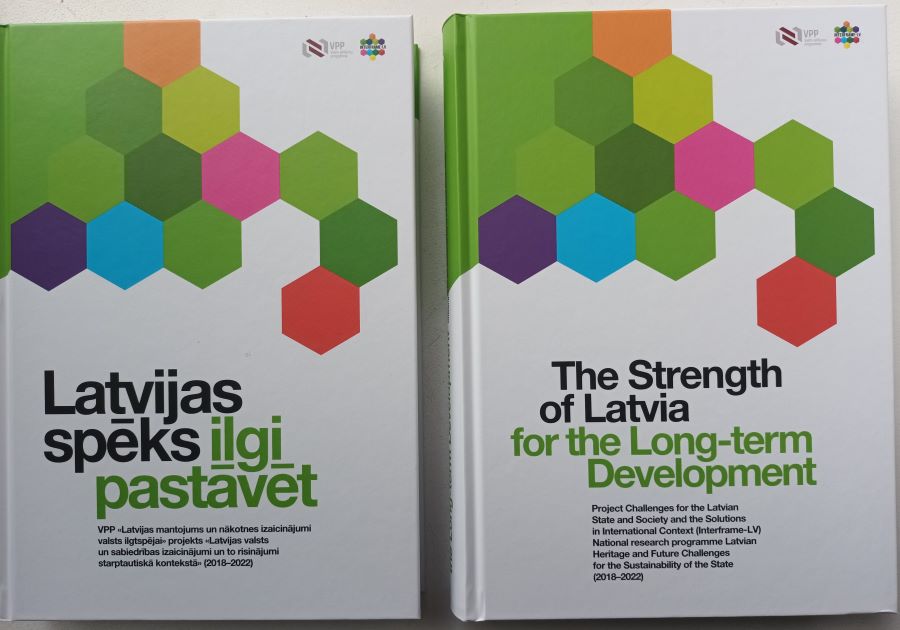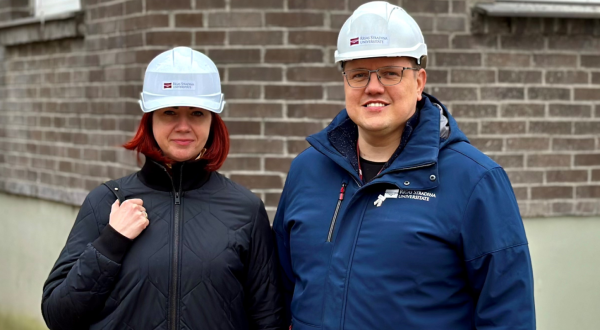Researchers from RSU Receive Award from Latvian Academy of Sciences
The Latvian Academy of Sciences (LAS) has highlighted the most significant scientific achievements in Latvia in 2022. Among the winners in theoretical sciences is the collective scientific monograph Latvijas spēks ilgi pastāvēt. This explores the challenges that Latvia's economy and society have faced from an international viewpoint and outlines tools for developing a smart economy and society. Researchers from RSU who work in psychology, sociology, economics, statistics, and communication sciences contributed to the book.

Between 2019 and 2021, researchers from RSU conducted three nationally representative public opinion surveys that allowed for the identification of the dynamics of socio-economic behaviour and values influenced by the COVID-19 crisis. Researchers also identified factors influencing attitudes towards health policy and vaccination.
For the first time in Latvian social sciences, researchers have demonstrated several statistically significant correlations between respondents' socio-economic position and their social behaviour, values, and assessment of social life. ‘Employment in the public or private sector and the status of an employee or a worker are variables that policy makers and researchers must take into account when predicting the behaviour of individuals,’ adds one of the authors of the monograph, Prof. Sergejs Kruks.
Researchers from the University of Latvia and the Latvia University of Life Sciences and Technologies have also contributed to the research and the monograph.
The collective monograph has also been published in English under the title The Strength of Latvia for the Long-Term Development. Baiba Rivža, academician of the Latvian Academy of Sciences, is Editor-in-Chief, and Ausma Mukāne is Editor-in-Charge.
A total of 55 applications were evaluated in the LAS competition for the most significant scientific achievements: 16 in natural sciences, medicine and health sciences, 13 in material and engineering sciences, 22 in the humanities, arts, and social sciences, and four in agriculture and forestry sciences. Twelve of them were chosen as winners.
‘The Latvian Academy of Sciences has done a great job in organising the competition for the most noteworthy achievements in science in Latvia and evaluating the applications.
It is gratifying that the winners have demonstrated a high level of research, a novelty of results, and the theoretical and practical relevance of this research,’
said Ivars Kalviņš, President of the Latvian Academy of Sciences.
Related news
 RSU is growing and developing: major reconstruction underway in the main buildingDevelopment, For RSU Employees, For Students
RSU is growing and developing: major reconstruction underway in the main buildingDevelopment, For RSU Employees, For Students


